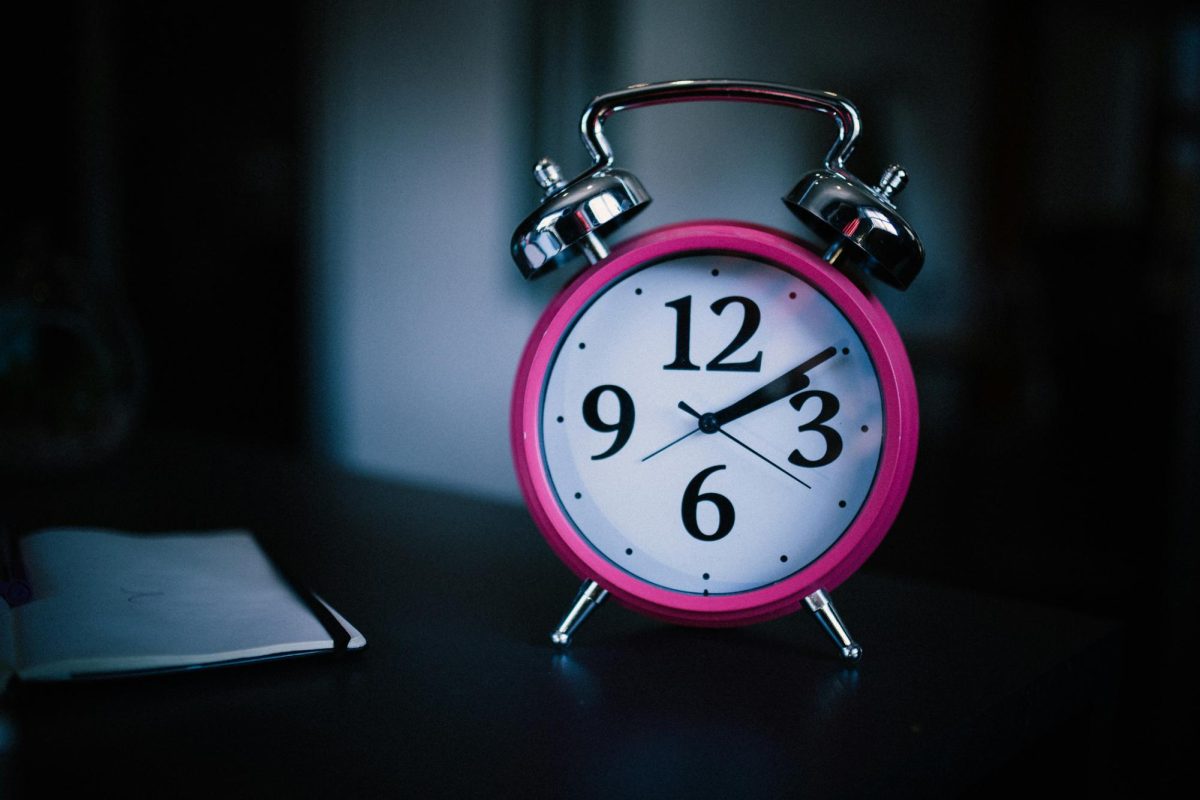“Block one will start in two minutes,” is an announcement we hear 180 days out of the calendar year, at 7:33 a.m. Following this announcement, the footsteps of students in the hallways grow louder and then cease, right before the bell rings at 7:35. If you’re lucky, maybe there is an additional announcement asking teachers to hold off on taking attendance because the buses are late.
School starts pretty early; there’s no denying that. However, while you may have a tough time getting out of bed in the morning, starting early has some advantages. School ends at 2:03, which is excellent for all students who have after-school activities, which is most of them. Most students are home at a reasonable time.
The idea of changing the school starting time to later has been suggested. Aside from feeling less zombie-like during the first block, in what other ways could this be beneficial?
According to the American Psychological Association, “When school systems have moved to start times later, they have found that their students get more sleep.” Teenagers need at least eight hours of sleep to function. Some students who work late or athletes who have late practice may not get to bed until much later and then wake up at six the following day. A later start may be helpful, especially for these students.
Speaking from personal experience, many of my classmates skip breakfast because they do not want to get up earlier in order to eat something. It’s no secret that eating breakfast is essential, especially before the school day. If school were to start later, students may feel more motivated to eat before school, which translates to more focused students in the classroom.
According to U.S. News, some other benefits include “reduced risk of car accidents and injuries and less tardiness.”
If you’ve ever been late to school, you know the dreaded walk to the House Office and the wait in line to get a late pass, making you even late to class. With a later start time, perhaps students can leave at a reasonable time because it is not so early in the morning.
On the car accident front, there hasn’t been anything extremely tragic in the many student parking lots. However, senior students are no strangers to a fender bender. “Multiple studies have shown that both overall car crash and distracted driving crash rates drop significantly with delayed school start times, which can reduce mortality and morbidity in adolescents” (Durrani). Having some extra time in the morning allows for students to have more time to wake up and be mentally prepared for the day, resulting in more careful driving.
For those who want to see a positive change in terms of academic performance, this is very evident in many studies when schools modify their start time. “on a national scale, the authors of another study estimated that National Assessment of Educational Progress math scores for eighth graders would increase as much as 8 points if schools started one hour later, which many experts say is equivalent to almost a full grade-level increase” (Durrani). While this is only one example, it is clear that test scores would most definitely increase.
Though there are many benefits to a later start, it is clear that changing the entire schedule of the school day would be quite difficult. It is also notable that a later start may affect the morning traffic for adults who are going to work. Having buses on the roads simultaneously as those commuting to work may increase the amount of traffic.
Ultimately, no one likes waking up early. Arguably, all teachers, students, and bus drivers would prefer a later start time. 8:30 would be ideal, which is only an hour difference.
In a perfect world, the lines for getting late passes are shorter, there are no student-driver accidents, students’ eyes are open first block, and everyone is well-rested. Until then, the sweet, sweet sound of “Block 1 will start in two minutes” will continue to remind Hunterdon Central that school starts at the bright and early time of 7:35.






